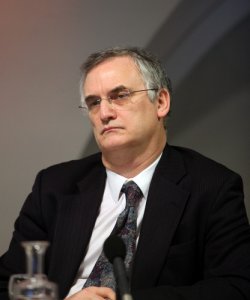Even though the holiday season saw a shopping spree and government spending accelerated in the final months of 2011, the economy still fell by 0.2%, according to the latest figures released by the Office of National Statistics.
Quite a few economists are enthused by these figures, but a Bank of England policymaker maintains that an open mind must be maintained in terms of the need for further quantitative easing. Although household spending rose by 0.5% and government consumption rose by 4% in 2011, this was not quite enough to completely ease fears of a double dip recession.
ONS spokesperson, Paul Fisher, who is also a policymaker for the Bank of England is still uncertain as to whether or not further quantitative easing would be required of the government. One of the hindrances that growth according to Fisher is the fact that oil prices are rising steeply. In fact, within the honest month alone they have risen by an incredible 11%. He feels this could hinder economic recovery by spurring inflation.
Shadow Chancellor, Ed Balls, notes that the data released by the ONS proves that there is a weakness in the recovery plan set forth by the government in that there was a huge decline in business investment. Balls further contends that the budget to be set forth next month will need to focus on a genuine plan for jobs and of course, economic growth.
The underlying fear throughout all of this is that the economy in Britain must grow this quarter or we will be officially in a recession. However, in an article in the Guardian, a rise in manufacturing, retail sales and the services sector show signs that the economy is on the rebound. Unfortunately, Chancellor George Osborne is facing growing pressure to ease up on spending cuts in order to restore growth but he is resisting this pressure, maintaining government needs to stick to its plan.



